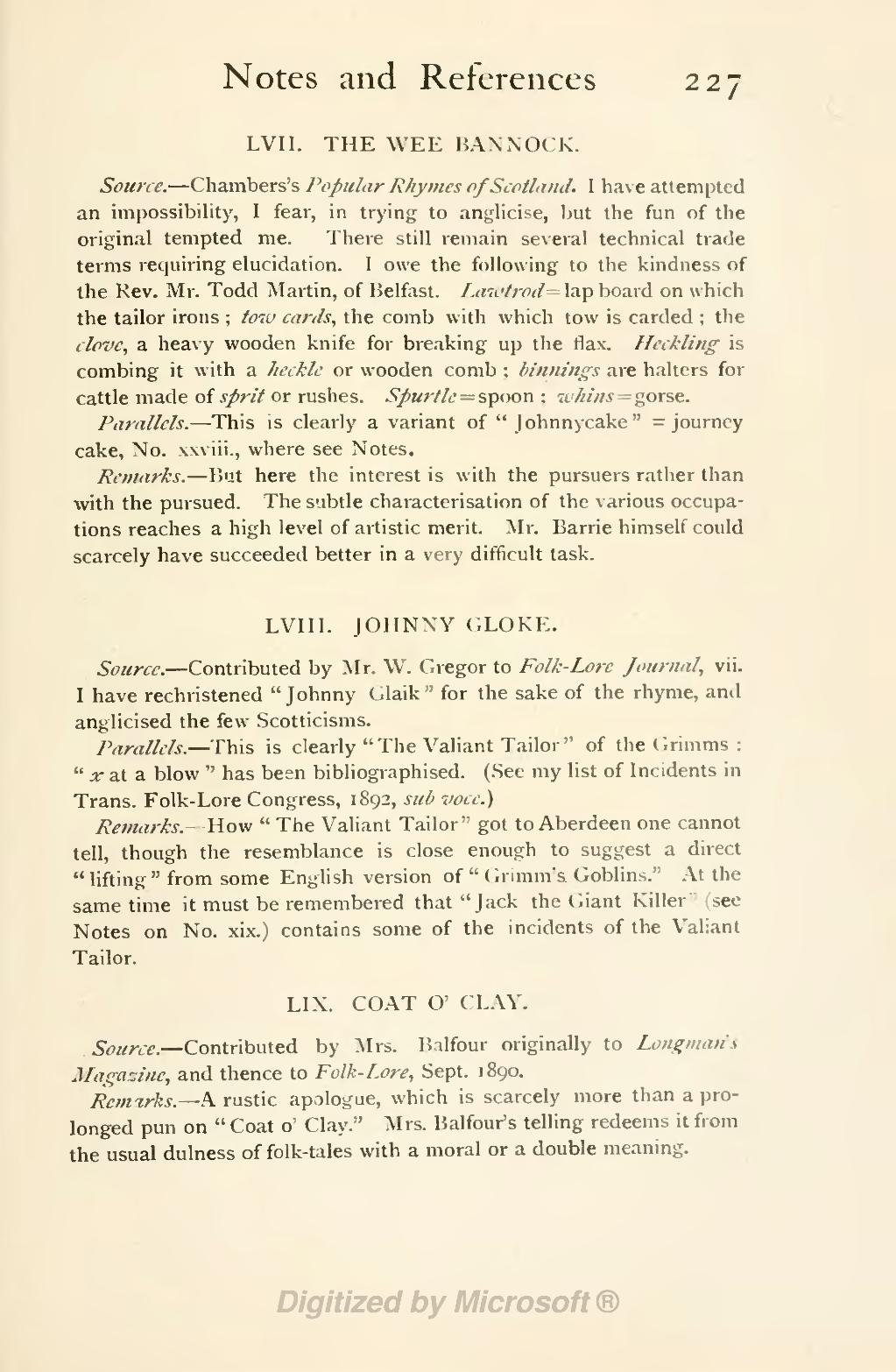Source.—Chambers’s Popular Rhymes of Scotland. I have attempted an impossibility, I fear, in trying to anglicise, but the fun of the original tempted me. There still remain several technical trade terms requiring elucidation. I owe the following to the kindness of the Rev. Mr. Todd Martin, of Belfast. Lawtrod=lap board on which the tailor irons; tow cards, the comb with which tow is carded; the clove, a heavy wooden knife for breaking up the flax. Heckling is combing it with a heckle or wooden comb; binnings are halters for cattle made of sprit or rushes. Spurtle=spoon; whins=gorse.
Parallels.—This is clearly a variant of “Johnnycake”=journey cake, No. xxviii., where see Notes.
Remarks.—But here the interest is with the pursuers rather than with the pursued. The subtle characterisation of the various occupations reaches a high level of artistic merit. Mr. Barrie himself could scarcely have succeeded better in a very difficult task.
Source.—Contributed by Mr. W. Gregor to Folk-Lore Journal, vii. I have rechristened “Johnny Glaik” for the sake of the rhyme, and anglicised the few Scotticisms.
Parallels.—This is clearly “The Valiant Tailor” of the Grimms: “x at a blow” has been bibliographised. (See my list of Incidents in Trans. Folk-Lore Congress, 1892, sub voce.)
Remarks.—How “The Valiant Tailor” got to Aberdeen one cannot tell, though the resemblance is close enough to suggest a direct “lifting” from some English version of “Grimm’s Goblins.” At the same time it must be remembered that “Jack the Giant Killer” (see Notes on No. xix.) contains some of the incidents of the Valiant Tailor.
Source.—Contributed by Mrs. Balfour originally to Longman’s Magazine, and thence to Folk-Lore, Sept. 1890.
Remarks.—A rustic apologue, which is scarcely more than a prolonged pun on “Coat o’ Clay.” Mrs. Balfour’s telling redeems it from the usual dulness of folk-tales with a moral or a double meaning.
